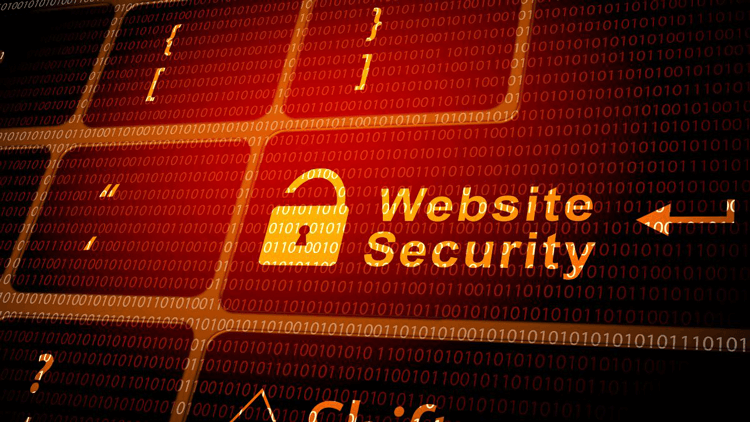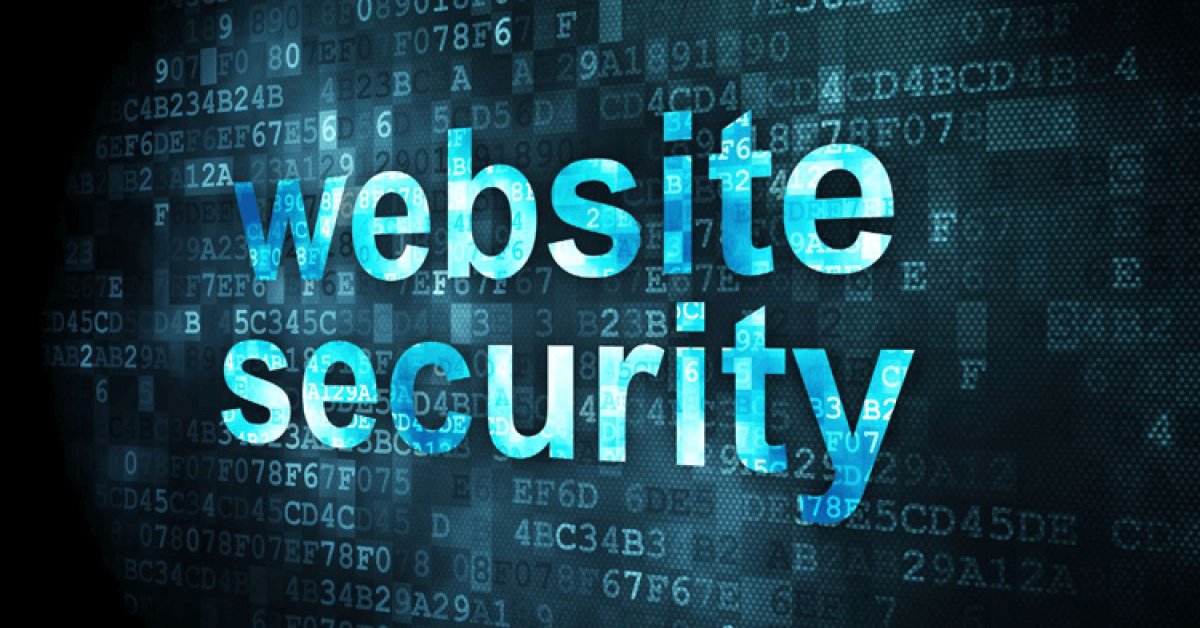Essential Tips for Your eCommerce Website Security
Picture this: you’ve spent months building a beautiful eCommerce website, meticulously curating products and crafting compelling content. Your hard work finally pays off as customers start flocking to your site and making purchases left and right.
Life is good – until one day, disaster strikes as a sophisticated cyber attack that compromises your entire operation. Suddenly, all those countless hours put into creating the perfect online storefront feel like wasted effort.
One particularly harrowing experience involved a small eCommerce site a passionate entrepreneur runs. After spending years nurturing and growing online stores, she woke up one morning to find that cybercriminals had infiltrated her website.
Not only did this breach compromise customer data and payment information, but it also eroded the trust she had painstakingly built with her loyal clientele.
Don’t let this nightmare scenario become a reality for you!
In this article, we will equip you with essential tips for your eCommerce website security so that you can sleep soundly at night, knowing that your business is protected from malicious threats lurking in cyberspace.
- The importance of eCommerce website security
- Tips for your eCommerce website security
- Use strong, unique passwords for all accounts.
- Implement multi-factor authentication for added protection.
- Regularly update and patch your website’s software.
- Use SSL encryption to secure customer data.
- Conduct regular security audits and vulnerability assessments.
- Conclusion
The importance of eCommerce website security
With the rapid growth of eCommerce, website security has become more critical than ever. Online shoppers want to know that their personal information and financial details are secure when purchasing online. Therefore, businesses must prioritize website security measures to build trust with potential customers and protect their valuable data.
One aspect of website security that often gets overlooked is the importance of regular software updates. Outdated software can leave vulnerabilities in a website’s code, allowing hackers to exploit these weaknesses and gain unauthorized access.
By keeping all software up to date, including content management systems, plugins, and themes, businesses can significantly reduce the risk of a cyberattack.
Another vital component of website security is SSL (Secure Sockets Layer) certification. SSL encrypts the communication between a user’s browser and the web server, ensuring that any sensitive information transmitted during an online transaction remains confidential.
Not only does SSL help prevent data breaches and identity theft, but it also boosts customer confidence by displaying the padlock symbol or https:// in the address bar and tangible signs that indicate a secure connection.
Maintaining robust website security is essential for eCommerce success. By regularly updating software and implementing SSL certification, businesses can not only safeguard customer data but also cultivate trust among online shoppers.
Prioritizing website security demonstrates a commitment to protecting users’ privacy and business reputation, critical for long-term sustainability in the eCommerce industry. Below are some tips in detail to secure your websites.
Recommended Blog for
👉 Securing Your eCommerce Website: 12 Steps You Should Take
👉 Digital Security: Is Your Digital Business Secure Enough to Fight Hackers?
Tips for your eCommerce website security
Use strong, unique passwords for all accounts.
In a world where online threats have become increasingly sophisticated, strong and unique passwords cannot be overstated. With password breaches occurring more frequently, we must take our website security seriously. Gone are the days when you could simply use your pet’s name or a common word as your password; hackers have evolved their tactics to crack even the most seemingly complex codes.
One way to create a strong and unique password is by combining uppercase and lowercase letters, numbers, and symbols. Avoid using personal information such as birthdays or addresses that can easily be guessed or obtained.
Instead, opt for random combinations unrelated to your personal life. Additionally, refrain from reusing passwords across multiple accounts. While it may seem convenient, this practice puts all your accounts at risk if one becomes compromised.
Remembering many strong passwords may seem daunting at first, but with the help of password managers, this task becomes much more accessible. Utilizing such tools not only allows you to generate and store unique passwords for each account but also eliminates the need for you to memorize them all.
By taking these simple yet crucial steps toward securing our online identities, we can proactively protect ourselves against potential cyberattacks and ensure that our digital presence remains safeguarded in an ever-changing virtual landscape.
Implement multi-factor authentication for added protection.
Implementing multi-factor authentication is crucial for enhancing website security and protecting sensitive data. While a username and password combination provides protection, it can be compromised through various means. Multi-factor authentication adds an extra layer of security by requiring users to provide two or more different types of information or factors to authenticate their identity.

One commonly used factor is biometric identification, which includes fingerprint or facial recognition. Biometrics are unique to each individual, making it extremely difficult for unauthorized access.
Additionally, another factor often used in multi-factor authentication is a temporary code sent to the user’s registered mobile device, ensuring that only individuals with physical possession of the device can log in.
By implementing multi-factor authentication, businesses can significantly reduce the risk of unauthorized access and protect valuable user information.
Additionally, this extra step is a deterrent for potential attackers who may find it much more challenging to bypass multiple layers of security.
Ultimately, investing in multi-factor authentication demonstrates a commitment to prioritizing website security and building trust with users by safeguarding their data from cyber threats.
Regularly update and patch your website’s software.
Regularly updating and patching your website’s software is crucial for ensuring its security. With the evolving nature of cyber threats, hackers are constantly finding new vulnerabilities in software systems.
By not keeping your website’s software up to date, you leave open doors for attackers to exploit these weaknesses and gain unauthorized access to your data or even take control of your entire site.
Moreover, updating and patching your website’s software doesn’t just protect you from external threats; it also helps prevent potential issues caused by outdated technology.
As developers release new features and enhancements, updates often include bug fixes that can improve the overall performance of your website. Ignoring these updates could lead to slow loading times, glitches, or compatibility problems with other software.
In addition to security benefits, regularly updating and patching your website’s software signifies a commitment to providing an optimal user experience. Visitors expect websites that are fast, responsive, and reliable.
Ensuring that all site components are running on the latest versions available, you contribute to an enhanced user experience while reducing the risk of downtime due to system failures.
To sum up, updating and patching your website’s software is an essential practice for safeguarding against cyber threats, optimizing performance, and delivering exceptional user experiences.
Neglecting this vital task can result in severe consequences, such as compromised data or a damaged reputation. So make it a habit; keep those updates coming!
Use SSL encryption to secure customer data.
Regarding eCommerce website security, one critical aspect that cannot be overlooked is SSL encryption. SSL, which stands for Secure Sockets Layer, is a protocol that encrypts the connection between a user’s web browser and a website’s server.
Moreover, this encryption ensures that data between the two parties remains private and secure.
So why should businesses prioritize using SSL encryption to secure customer data?
Firstly, by implementing SSL encryption on your website, you provide trust and confidence to your customers. With cyber threats constantly evolving, users are increasingly cautious about sharing their personal information online.
By displaying the padlock icon in the address bar and using HTTPS instead of HTTP in your URL, you signal to customers that their data is being protected during transmission.
Secondly, using SSL encryption doesn’t just benefit your customers; it also helps your business.
Many search engines now prioritize websites with an SSL certificate in their search results rankings since they consider these sites more trustworthy and reliable.
Thus, having an SSL certificate not only enhances customer trust but can also improve your SEO efforts.
To sum up, implementing SSL encryption provides numerous benefits for both businesses and customers alike. It allows websites to establish trust with users by securing sensitive information during transmission while contributing to better search engine visibility.
Investing in SSL encryption is no longer just an option; it’s necessary for any business looking to protect its customers’ data effectively in today’s digital landscape, where privacy concerns are paramount.
👉 Read: How to Install SSL Certificate on WordPress: Keep Your WordPress Site Secure
Conduct regular security audits and vulnerability assessments.
Regular security audits and vulnerability assessments are crucial for maintaining the overall integrity and safety of your website. These practices allow you to proactively identify vulnerabilities, weaknesses, or gaps in your security systems. By conducting periodic audits, you can stay one step ahead of cyber threats and ensure that your website is protected against potential attacks.

One fresh perspective on this topic is that security audits shouldn’t be seen as a chore or an occasional task but rather as an ongoing commitment to safeguarding your digital assets.
Regular security assessments are no longer a luxury; they have become necessary. By dedicating time and resources to these audits, you actively mitigate risks and demonstrate your commitment to protecting your business and its customers.
Another exciting aspect is the value of involving external experts in vulnerability assessments. While internal teams play a vital role in detecting vulnerabilities, bringing outside specialists can provide valuable unbiased insights.
External auditors bring diverse experiences from working across various industries, allowing them to spot potential blind spots that internal teams may have missed. Their external perspective ensures more comprehensive evaluations that cover a wider range of attack vectors, improving the overall effectiveness of your security measures.
Conclusion
In an era where technology has taken over every aspect of our lives, eCommerce businesses must prioritize security to protect their sensitive data and customer information.
With the rise in cybercrime and hacking incidents, website security should be at the top of your priority list. Failing to secure your eCommerce platform not only puts you at risk of financial losses but also damages your brand reputation.
Investing in robust security measures such as SSL certificates, firewalls, and regular vulnerability assessments can prevent unauthorized access and keep malicious attacks at bay.
Moreover, implementing multi-factor authentication can add an extra layer of protection by requiring multiple credentials for access.
Remember that when it comes to cybersecurity, staying ahead of potential threats is essential. Continuous monitoring and updates are necessary to ensure your eCommerce platform remains secure against new vulnerabilities.



